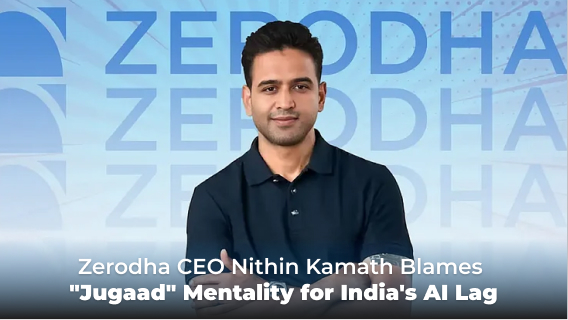By Prasenjit Das

Zerodha CEO Nithin Kamath has expressed concerns about India’s approach to artificial intelligence (AI) innovation. He believes that the country’s focus on quick fixes and a “Jugaad” mentality is hindering its progress.
Kamath pointed to China’s DeepSeek AI breakthrough as proof of the value of long-term AI research investment. He argued that India lacks this kind of support for researchers, causing many talented individuals to leave the country. He suggests this “Jugaad” approach, while sometimes effective in the short term, ultimately prevents India from competing with countries like China in the long run in the AI race.
He compares India and China, pointing out their similar economic starting points in the mid-20th century. He then emphasises how China’s reforms led to much greater economic and technological advancement.
According to Kamath, DeepSeek, a Chinese AI model developed for a mere $6 million, exemplifies India’s missed opportunity. China’s DeepSeek has achieved remarkable success in the AI field, surpassing OpenAI’s models, dominating the iOS App Store, and outshining Meta in open-source AI.
Kamath said “Say what you will about the differences in our worldviews and economic models, but their scientific and technological progress is undeniable across disciplines—DeepSeek is just the latest example.
“I think the problem that has always plagued India is short-termism. Problems are typically addressed through a patchwork or the Jugaad mentality. This is true when it comes to business, politics, regulatory approaches, etc. Many problems that require focused long-term thinking instead get band-aid fixes,” he stated.
He said “This is not something that will show results instantly. In the case of China, it was 2 decades at the bare minimum focusing just on research. If we start focusing on building our research and scientific capabilities, we will hopefully see results in 5 to 10 years,”.
Nithin Kamath warns that India cannot afford to be mediocre in AI. Being mediocre won’t be an option,” he says, emphasising the potential long-term consequences for India’s global standing. His comments highlight the urgent need for systemic change in India’s approach to AI innovation and research.